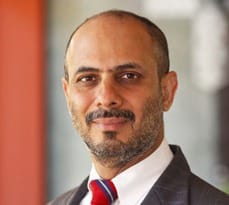Research on the impact of childhood disasters on CEO risk-taking wins Ig Nobel Management Prize, awarded to achievements that make people laugh and think.

A study co-authored at University of Cambridge Judge Business School that investigated how CEOs surviving traumatic childhood natural disasters end up with a greater appetite for risk-taking won the Management Prize at the 2015 Ig Nobel Prizes, which honour achievements that “first make people laugh then make them think.”

The prize, one of 10 Ig Nobel awards this year, was awarded in a festive and humorous ceremony on Thursday evening at the Sanders Theater at Harvard University in Cambridge, Massachusetts, in which genuine Nobel laureates (in fields such as economics and physics) handed out the awards.
This was the 25th year for the Ig Nobel Awards, organised by the magazine Annals of Improbable Research. “The prizes are intended to celebrate the unusual, honour the imaginative – and spur people’s interest in science, medicine and technology,” say the organisers.
The study that won the Ig Nobel Management Prize – entitled “What doesn’t kill you will only make you more risk-loving: early-life disasters and CEO behavior” – was co-authored by Raghu Rau, Sir Evelyn de Rothschild Professor of Finance at Cambridge Judge Business School. The co-authors were Gennaro Bernile of Singapore Management University and Vineet Bhagwat of the University of Oregon. The paper is forthcoming in the Journal of Finance.
“Finance is fun,” says Professor Rau, who attended the ceremony. “Some may get a chuckle out of this paper, but I also hope they think about how early-life experiences may have long-term real effects on business policy, affecting areas such as financial leverage, cost of capital and firm riskiness.”
The research found that CEOs who in their childhoods experienced a number of moderate disasters – including earthquakes, hurricanes, tornadoes, landslides and floods – were more ready to take risks than those who had experienced no disasters. In contrast, those who experienced the most extreme natural disasters were the most risk averse.
Risk-taking by CEOs was measured by such factors as leverage ratio, the amount of cash held as a percentage of book assets, stock volatility and the announcement of a corporate acquisition.
Professor Rau and his colleagues based the research on a database of county-level natural disasters in the United States between 1910 and 2010. They then determined the extent to which 1,711 CEOs in the study (who served in S&P 1500 firms between 1992 and 2012) were likely to have experienced these events between the ages of five and 15 – based on data such as year and location of their birth, and the state where they received their Social Security number.
“CEOs who experience fatal disasters without extremely negative consequences lead firms that behave more aggressively, whereas CEOs who witness the extreme downside of disasters behave more conservatively,” the study says.
Professor Rau cautions that while the paper studies the record of chief executives who have lived through disasters in their childhoods, it doesn’t predict whether experiencing such early-life disasters increases the likelihood of eventually becoming a CEO. (In other words: don’t try this at home, because parents whose children live through a disaster shouldn’t assume they will grow up to be business titans!)
The awards ceremony will be followed on Saturday 19 September by the Ig Informal Lectures at the Massachusetts Institute of Technology, at which award winners will explain their research at a “half-afternoon of improbably funny, informative, informal” public lectures.

